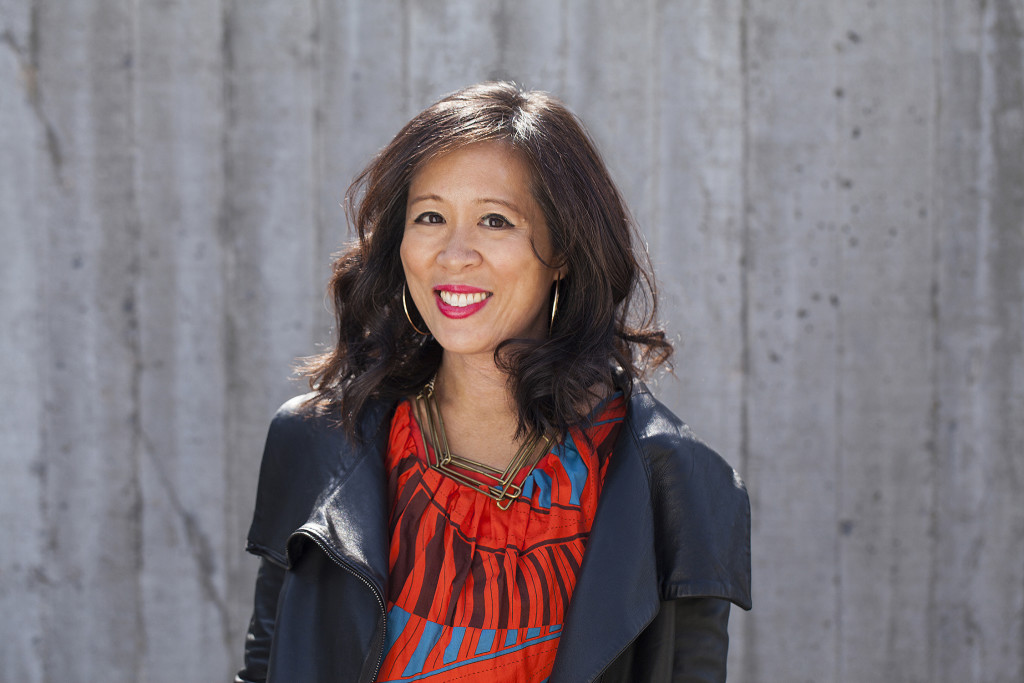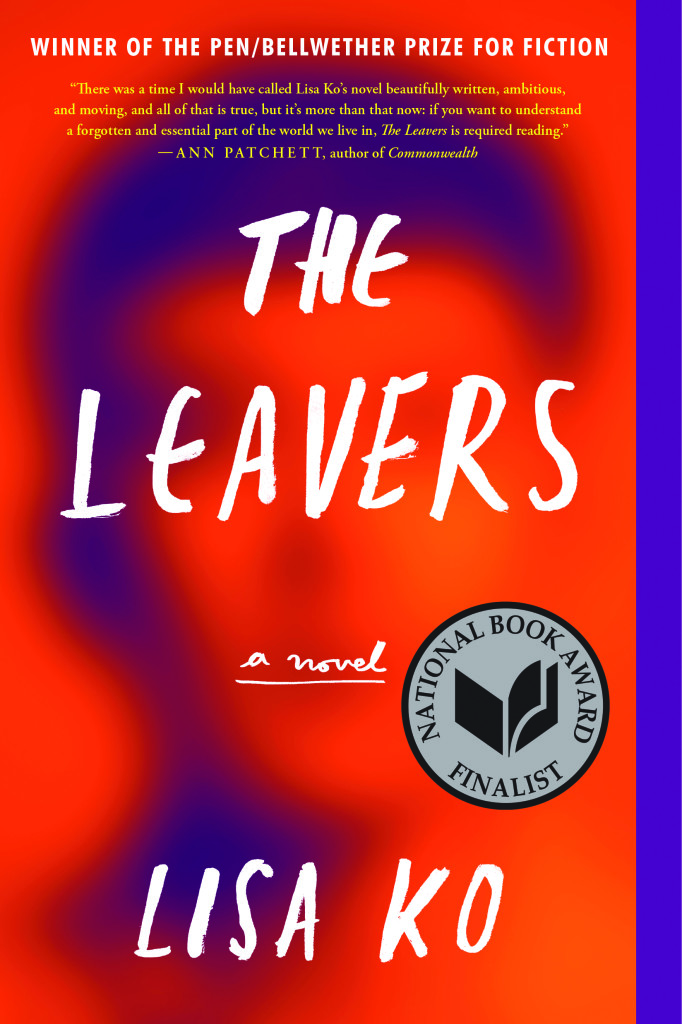Lisa Ko is the author of the much-acclaimed The Leavers, which won the 2016 PEN/Bellwether Prize for Socially Engaged Fiction and was a finalist for the National Book Award for fiction. The novel follows the story of an undocumented immigrant woman and her child in the U.S. – a story that feels both timeless and poignantly relevant to the contemporary discourse about human migration and race. Ko’s work has appeared in Best American Short Stories 2016, The New York Times, Buzzfeed, and (once, a long time ago, in an issue far, far away) The Brooklyn Review.
I was lucky enough to speak to Ko about The Leavers, justice, her future projects, and the illustrious state of New Jersey.
***
AC: Deming, the protagonist of The Leavers, is a complex character. He’s not a model minority by any means: unanchored by the disappearance of his mother, Polly, he’s a college dropout with a gambling problem who alienates his friends and vexes his adoptive parents. It can be frustrating as a reader to watch a character who you’ve grown to love sabotage themselves the way Deming does. Can you talk about why it was important to let Deming be complicated, and specifically about the choice to make him a gambler?
LK: Deming’s journey, like Polly’s in many ways, is really one of self-acceptance, and finding the ability to live on his own terms, rather than the expectations placed upon him by others. He’s experienced so many upheavals in his childhood, and so he wants to please his friends and his parents, but in trying to do so he ends up disappointing them. He thinks that finding out the truth about his mother’s disappearance will give him a sense of peace and resolution, and that ends up being true in some ways, but self-acceptance ultimately has to come from himself and not just from outside validation. A gambling problem seemed to fit his personality and his desire for risk, as well as the novel’s themes of chance, luck, and fate.
AC: Have you thought at all about what happens to Deming after the end of the book? I am curious to know what you think he would be like as he ages.
LK: I haven’t thought too much about it as I feel the book ends on the note that I wanted it to, but I do think it ends with Deming in a much better place, and that he’ll be able to make less destructive choices and be more true to himself as he gets older.
AC: One of the most admirable things about The Leavers was the discomfort of Deming’s adoptive environment. How were you able to depict this so accurately?
LK: Thank you! I did want to center the point of view of the adoptee, rather than the adoptive parents. I also wanted to write with an awareness of the social and political contexts that Deming’s adoption takes place in – and as you said, even when everyone has good intentions, certain complications can remain. While drafting the novel, I read and listened to the stories of transracial Asian adoptees. I’m conscious of the responsibility you have when you’re a writer writing about an experience that isn’t yours, and I wanted to do the work to treat these experiences with respect.
AC: You’ve noted elsewhere that the book was inspired by a 2009 New York Times piece about a mentally disabled woman, Xiu Ping Jiang, who was held in a immigration detention center for a year and a half. There are so many horrible stories of lives destroyed by immigration policy – what drew you to that story specifically? Can you describe a bit what your research process was like?
LK: I haven’t met Xiu Ping Jiang, and though Polly’s circumstances are only very loosely based on hers, I am deeply grateful for her for inspiring the novel. I think what drew me to her story at first was that we were the same age and both ethnically Chinese. But class privileges allowed my parents to migrate here legally from the Philippines on student visas, because U.S. immigration policies favor “educated” immigrants. As a child of immigrants, I’ve often imagined other ways my life might have been, if I had grown up in another country or not been born in the U.S. I did a good amount of reading and interviewing in my research, but at some point I also had to let go of these real-life stories and let the characters live out their own lives.
AC: The characters of The Leavers are fairly apolitical. There is a section in which Polly recounts the story of her detention, but even in that the descriptions focus on her fellow prisoners and deplorable conditions rather than on bureaucratic systems or government agents. There are probably many reasons for this, but could you talk a little bit about why you made this choice?
LK: Part of the process of writing the book was figuring out what the story was. While earlier drafts were motivated by more explicitly wanting to raise awareness about these issues, I realized that the actual story was about the characters and the choices and actions they make and take while being affected by deportation and detention.
AC: Immigration has always played an important role in the U.S. Questions of who gets to stay or not, who we consider a citizen or not, and whether or not the U.S. actually lives up to its promise are more or less always relevant. But The Leavers does feel like a truly important book for this political moment. The book is certainly critical of U.S. immigration policy and the “U.S. is best” ethos, but it doesn’t feel heavy-handed; the book is more interested in following its characters and letting readers draw their own conclusions from their lives. Did you ever find it difficult to avoid didacticism or moralizing in writing about a topic that is so hotly contested today? If so, how did you overcome that? Are you involved in any immigration activism?
LK: Initially, I was motivated to write the novel by my own anger about these unjust immigration policies. So the earliest drafts were depicting the injustices that happened to the characters. But that doesn’t make for a story, since the characters are just having things happen to them, rather than making decisions and acting in their own lives. The story started to come together when I realized it was less about the external circumstances of my characters and more about their internal journeys: their search for home, family, and belonging.
Activism has always been a part of my life, and not only as a writer. I believe that we all have a responsibility to stand up to injustice, whether it’s through changing values – and writing and storytelling can certainly be a part of that – or supporting those who are directly impacted by injustice, or doing resistance work both within and beyond electoral politics.
AC: Can you talk at all about the development of the project? How many different versions you went through, and how the project transformed over time? Polly’s story even without Deming is rich enough that it could be a standalone novel.
LK: I knew going into the writing process that I would have a mother and a son who would be separated. The novel was originally Polly’s story, but I found myself increasingly drawn to her son’s story as well. I wrote a number of different drafts as I tried to figure out what the best way to arrange scenes and chapters, until I landed on the present-day plot of Deming searching for his mother.
AC: The Leavers felt a bit like a love letter to New York. Some of the most beautiful passages in the novel occur in New York – Deming’s childhood in the Bronx, his reunion with an old friend in Sunset Park, Deming watching a New York sunrise after a night of debauched gambling, Polly going for long lonely walks through the city. What do you love about New York? And I know you grew up partly in New Jersey as well – do you think you’ll ever write a love letter to the Garden State?
LK: I love so many things about New York, but mostly that it feels like home to me, even when I’m complaining about the crowds and high rents and subways (though maybe that griping is also part of being a New Yorker!). It’s where I feel most like myself, where I have family and community. I’ve written about New Jersey in my short fiction, so we’ll see if I return to writing more about it in the future.
Good news for hardcover haters: the paperback edition of The Leavers has now arrived.


